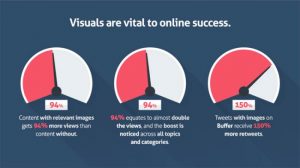Columnist Josh Todd makes the case for using your mobile data to inform every part of your digital marketing strategy and strengthen your relationship with your customers.

Mobile is a key part of the modern relationship between brands and consumers. While it is by no means the only channel for brands to reach their customers, I would argue it’s the most powerful one.
Why? Because mobile is real-time. When done right, it’s bidirectional. And it gives you a 24/7 direct line to your customers as well, as the most information about what those customers really want.
But getting mobile right is hard. User expectations are more demanding on mobile than on other channels because it’s more intimate and personal. Consumers quickly lose trust when brands hit them with irrelevant content or poor experiences on mobile. Since mobile dominates time spent with digital media, it is quickly raising the expectations of consumers across the engagements with a brand. This makes mobile, well, more than mobile.
To fully take advantage of everything mobile can deliver, you need to make sure your company can unlock the power of the data surrounding your mobile users and place it at the center of your marketing strategy. When you successfully integrate your mobile data into your overall strategy and use it to your advantage, you will quickly see that mobile can inform every part of a true omnichannel strategy and bring your relationship with your customers closer than it’s ever been before.
What should your mobile data tell you?
Data about your users should inform every interaction you have with those users. That’s certainly not rocket science, but you’d be surprised how many companies struggle to really understand what their users want or still have user data siloed in different parts of their organization.
Mobile data in particular gives you the fullest view of your user, since the average person is spending nearly three hours on a mobile device each day. This level of activity gives you the most complete picture of what users want.
Your mobile data should be able to tell you three important details about your users:
Where
Location is at the heart of relevance. The ability to pinpoint where your users are and engage with them based on their physical location is unique to mobile. Using geolocation, you can set up geofences so that when a device enters (or exits) the barrier, a push notification is sent. This means that content is always personalized to the user’s current location, so it’s highly relevant and timely.
You can extend this knowledge to other parts of your marketing strategy as well. For example, if a retailer knows that a customer prefers to be contacted by email but its mobile location data shows that customer has gone into a store and hasn’t made any purchases, the store could email them a coupon to try to convert them to purchase. Or that same retailer can use mobile location data to understand where to best locate its stores or its billboards in the future.
When
Mobile enables you to understand exactly how much time your users are spending in your apps, how their session lengths vary across different types of content and experiences, and what times of day they tend to engage more with the app. This level of detail is crucial in ensuring that your marketing campaigns are delivered to the most relevant users at the most relevant time for those users.
This data can be crucial in other parts of your marketing strategy. Imagine a travel or a lifestyle app having a deep understanding of who has engaged with their app a certain number of times or for long periods of time, and being able to target those users with exclusive deals via email or via their website. Those same companies could also reconfigure their website home pages to be a more premium experience for their most engaged app users.
How
Data about how your users are engaging with and using your app helps you unlock the full potential of mobile. Understanding which messages resonate most to certain segments of your audience will help you deliver more targeted, personalized content every time.
Your “how” data informs so many other areas of your marketing strategy. For example, if you are a retailer, and one of your customers goes into a physical store and buys a new winter coat, then later receives a push message or an email touting sales on winter coats, that makes you look bad. You simply cannot afford to have that blind spot. Your customers will hold you accountable.
Bring it all together
Mobile is an extremely personal platform. Because of this, it’s also unforgiving. Send someone the wrong push notification, and they won’t think twice about deleting your app for good.
The ability to capture insights about your mobile users and connect those insights with the rest of your marketing channels is crucial in being able to properly engage with your customers the way they want, when they want and where they want.
Some opinions expressed in this article may be those of a guest author and not necessarily Marketing Land. Staff authors are listed here.
Marketing Land – Internet Marketing News, Strategies & Tips
(31)
Report Post







